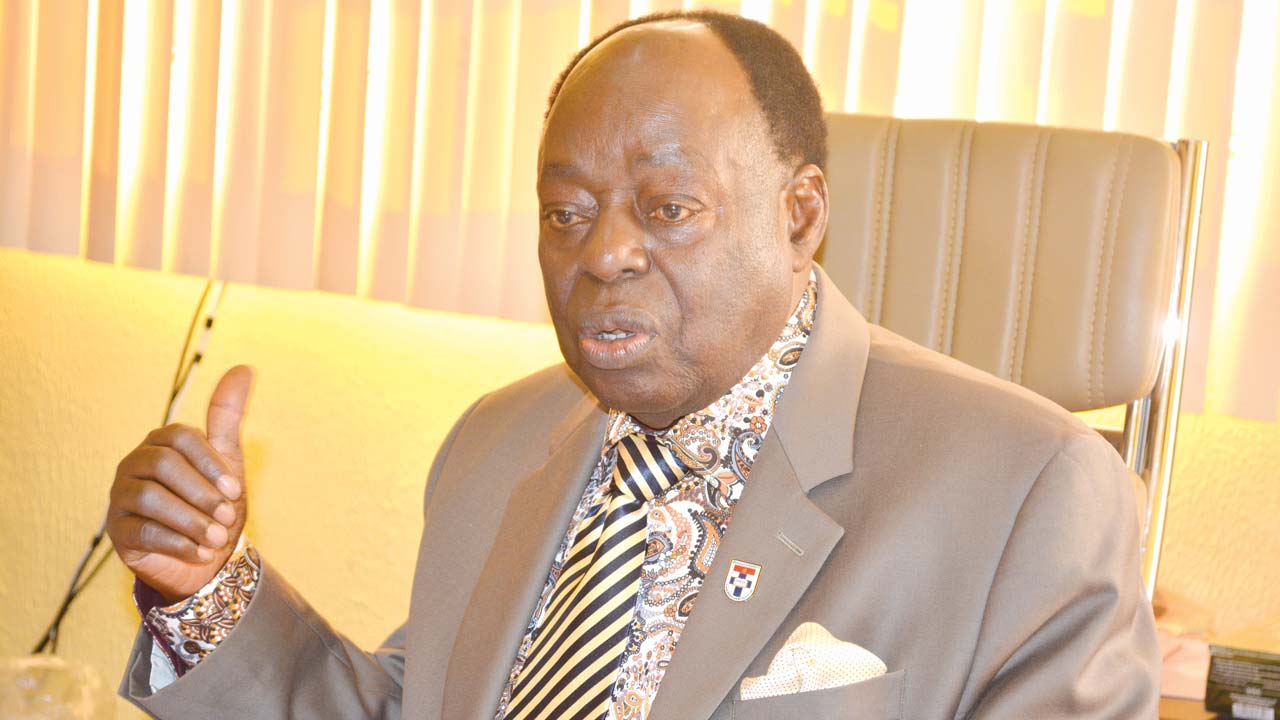
NIGERIAN women and many gender-based organisations were caught in ecstasy when the news of Mrs. Amina Bala Zakari’s appointment as the Acting Chairman, Independent National Electoral Commission (INEC) hit the waves.
This appointment by President Muhammadu Buhari makes her the first female to occupy this position in Nigeria’s history. It manifests a crowning of a successful career spanning over three decades across the public and private sectors.
During President Buhari’s campaign, many observers had asked questions of whether Buhari’s government would be sensitive to the aspirations and progress of women in his government. This observation became fiercer when Buhari said he would abolish the office of the first Lady since the constitution does not make provision for such office.
In the past, Nigerians have argued that the office of the First Lady is associated with financial profligacy and the only way to put such recklessness to check is by scrapping the office.
To the advocates of gender equality, however, this argument is not tenable since the office can be retained without financial profligacy. Accordingly, the Office of the First Lady remains one of the most virile avenues and platforms through which the Nigerian women make their challenges, needs, grievances and aspersions known to the President.
Some critics point to the number of women in the Lower and Upper Chambers of the National Assembly. They would recall that the 2007 to 2011 Assembly had 24 women which further increased to 27 in 2011-2015 Assembly but these numbers have gone down in the current dispensation as out of the 109 senators, there are just 7 women; and out of the 360 members of the House of Representatives, only 14 are women. But positions in the National Assembly are elective.
With Mrs. Amina Bala Zakari as the Acting Chairman of one of the hottest political seats in Nigeria, the appointment has become a metaphor of President Buhari’s sensitivity to gender equality. It is a pointer that the President recognises the potential of those women who have distinguished themselves in the service of the country and the society in their different capacities.
Amina’s appointment is a deserving one. She has worked with three Presidents: as Special Assistant to President Olusegun Obasanjo, GCFR between 2004 and 2007, and posted to the Federal Capital Territory (FCT) where she served as Secretary of Health and Human Services, Social Development and also served as Acting Secretary of Agriculture and Rural Development, in addition to her appointments at INEC. In 2011, she was appointed as an INEC Commissioner by former President Goodluck Jonathan, GCFR, making her an integral part of the team that successfully delivered two elections in 2011 and 2015, in Nigeria.
In her capacity as a National Commissioner, she supervised the Political Parties Monitoring Committee. Her efforts to achieve common grounds for engagement of political parties led to the revitalisation of the Inter-Party Advisory Council (IPAC) which helped to boost cohesion and consolidation of the nation’s political party system, resulting in the reduction of the number of registered parties from 63 to 28. Her consultative style and engagement with the political parties helped to reduce fractionalization and improve partnership with INEC in the run up to the 2015 elections.
Since Amina’s appointment as Acting Chairman of INEC, some interest groups have been campaigning against her without any known reason other than selfish motive. But why are they afraid of her? A blogger said that it is because she is a “strong, smart and competent woman they cannot control. They prefer someone who is corrupt and loyal to them.” One good term deserves another. As an incorruptible woman who has discharged her responsibilities in different capacities without blemish, Amina remains an Amazon to reckon with. She had many successes at the FCTA: the overhaul and upgrade of Satellite Town hospitals of Kuje, Bwari, Abaji, Kwali, Karshi and Kubwa which are still providing access for improved maternal and child healthcare.
She also oversaw the establishment of a successful concessionary Public Private Partnership of the Garki Hospital which still competes favourably with public and private healthcare providers in the FCT. Through her efforts, the FCTDrug Revolving Fund grew from N80 million to N300 million. Her monitoring background afforded an opportunity to enforce ethical practice in FCT private hospitals through active registration and inspection. Her focus on inclusiveness resulted in the establishment of two orphanages, sporting facilities and successful HIV/AIDS prevention programmes.
Mrs. Amina Bala Zakari also runs a healthcare consulting outfit when she is not performing public service. She started out her career as a young pharmacist at Abubakar Tafawa Balewa University, Bauchi where she set up the University Clinic from scratch and has not looked back since then. She holds a degree in Pharmacy from Ahmadu Bello University Zaria, in addition to executive programmes at International Drug Agency Netherlands, Crown Agents United Kingdom and Harvard Business School. She is a registered member of Pharmacists Society of Nigeria (PSN) and member, Nigerian Institute of Management.
Amina is from Kazaure in Jigawa State and still plays an active role in community development. Her Father Hussaini Adamu was the Emir of Kazaure. In his early career he was an educationist and independence era civil servant that devoted his life to education and education policy. He was a champion for girl-child education and instilled a passion for public service in Amina and her siblings at an early age.
Amina Zakari is also a successful domestic engineer raising five children as a widow. She attributes her success to the blessing of God, support of an extended family system and a country that rewards hard work, dedication and commitment to duty.
President Buhari is conscious of the fact that the change mantra will become a mirage without engaging women in the important sectors of the economy. Amina’s appointment is evidence of a renewed commitment of the President to fulfil one of his promises of ensuring that gender is mainstreamed in all key sectors of Nigerian economy; a promise he made on March 19, 2015 during a town hall meeting with professional women in Lagos.
• Komolafe tweets from the handle @deshola






